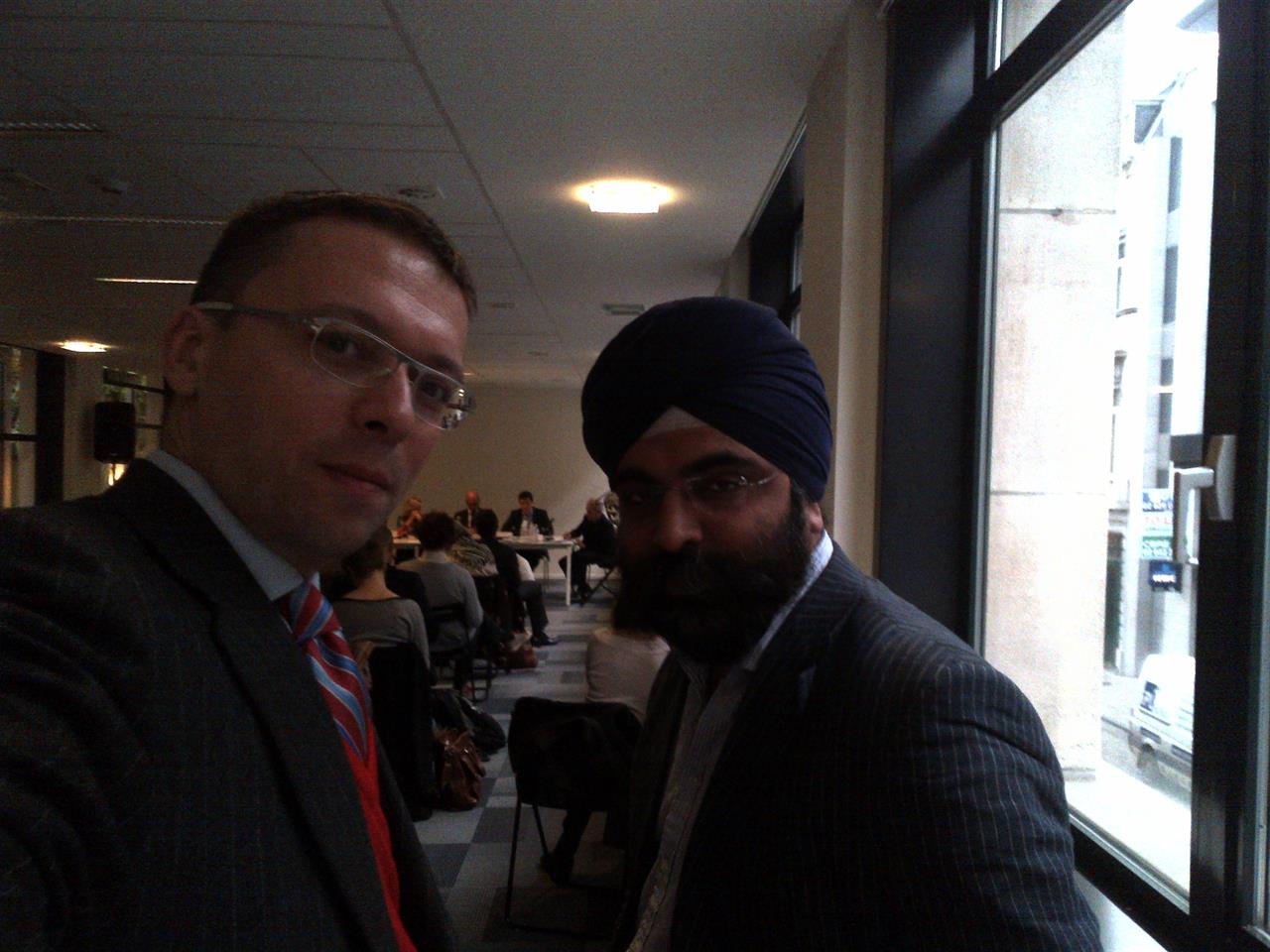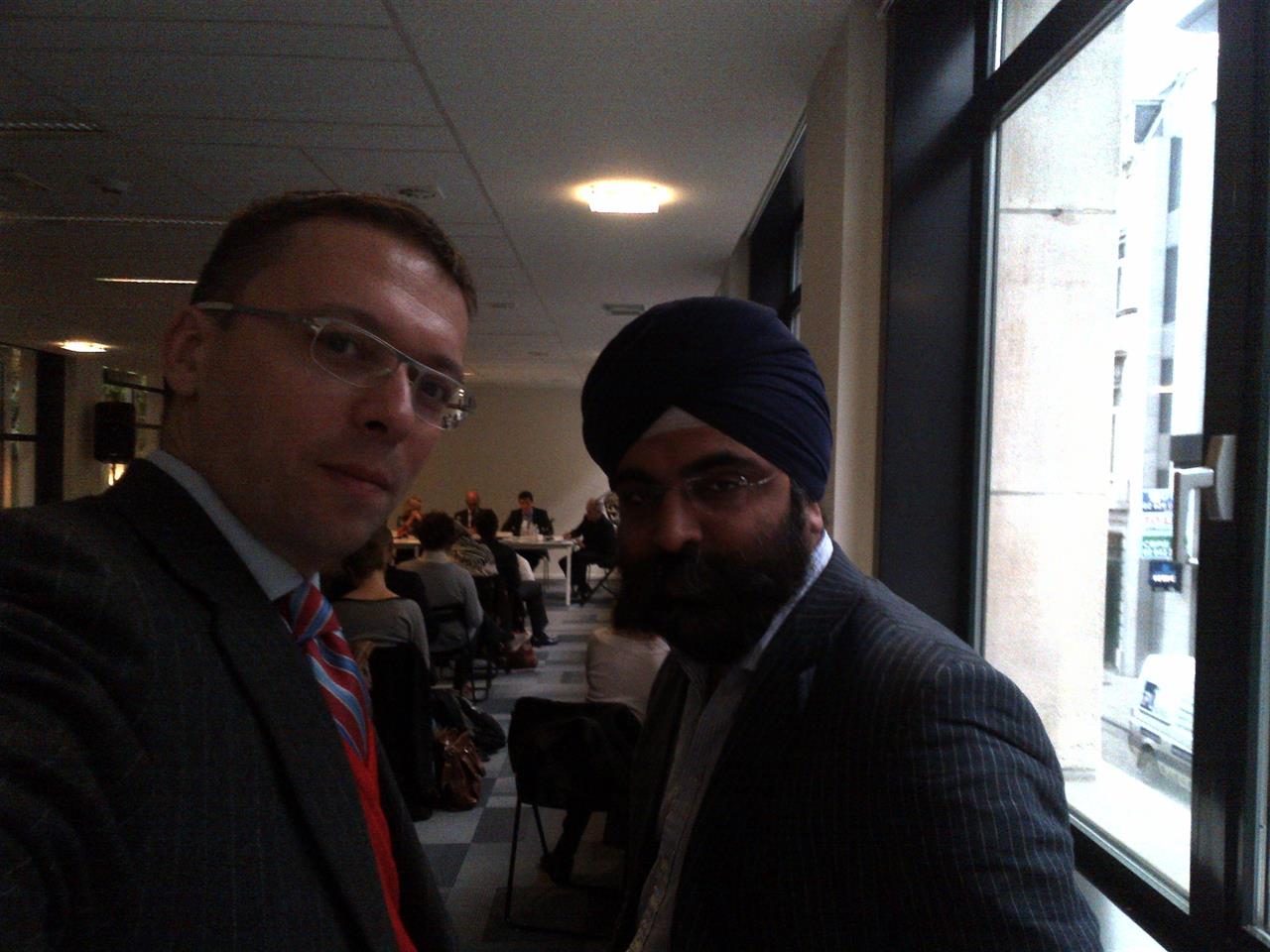
“Social impact investing is neither about government funding under another label, nor philanthropy. It’s not a new fundraising strategy for non-profit organisations… and money is not even the central question. Investing for social impact is an agenda to turn capital into a force to create a market for social change”
Can we really make capitalism to serve social development? Marx would horrify, but that was the creed of Adam Smith. Whatever is your view attendants at Friday event realized that these was not the usual Brussels debate as we started.
People are tired of repetitive lobbyists and complacent policy-makers. They want real solutions for the ongoing state of crisis in which we have been trapped for the last 5 years. Therefore Consulta Europe asked me to design a session on social impact investing.
On Friday Indy Johar (Hub Launchpad) and I jumped on 6:50 Eurostar to bring fresh air in the stale debate on the European social entrepreneurship agenda. Karl Richter (Engaged Investment) and Fried Roggen (SI2 Fund/I-Propeller) joined the discussion during the conference Social Entrepreneurship and Innovation: Policies, Instruments and Best Practices organised by Consulta Europe during the EU SME Week.
In more than an hour we manged to assess the state of the art and brainstormed on new ideas for the future social entrepreneurship agenda. The room was on fire: we challenged the cultural domination of Venture Capital and US West Coast innovation models as unsuitable to social enterprise & finance in Europe. We called for a move from a hierarchical, proprietary and centralized innovation strategy to a distributed, open and localized one in which public institutions share risks and benefits with independent stakeholders.
We even put in question the obsession with the marker ‘social’ which defines any new initiative these days but relegates a transformative vision for society to industrial relationships or vulnerable groups.
The line of the day was Indy’s: “The problem is not public or private, but size. In large organisations the overheads for innovation are unaffordable. We need to move from the distributing state to the distributed state.”
This was the first shot of the EuropeLab that I’m developing in my new job at the Young Foundation. Don’t get surprised if you find traces of Friday’s conversation in the final statement of the next European Council due to meet on 14 February 2014.
BTW, not by chance the event was organised the day following the official meeting of the Commission’s experts (GECES). If we trust the eyewitnesses the official meeting again closed without results as interest groups fought to defend their acquired interests.
The President of one of the cooperative national bodies commented: “It was nothing more than a large gathering of people… and the conference in Strasbourg looks to turn out the same”.
You like professional gossiping don’t you?
Cosa fa VITA?
Da 30 anni VITA è la testata di riferimento dell’innovazione sociale, dell’attivismo civico e del Terzo settore. Siamo un’impresa sociale senza scopo di lucro: raccontiamo storie, promuoviamo campagne, interpelliamo le imprese, la politica e le istituzioni per promuovere i valori dell’interesse generale e del bene comune. Se riusciamo a farlo è grazie a chi decide di sostenerci.

